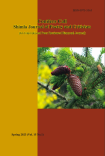The Poetic World of Sujata Bhatt
Indian women’s poetry in English, still a marginalized area of critical study, is slowly
gaining ground as a significant and identifiable area of research. The woman writer’s
reconstruction of life through the various literary forms and modes emphasizes the validity of
Beheroze Shroff’s statement: “The time has come for women to stop seeing through men’s
eyes and language–we have to have a different women’s voice.” The Indian English women
poets of the first phase of development wrote during the crucible years of the 1950s and
1960s of nation building and consequent decolonization. Then came the post-modern second
generation women, writing in the recent past of the 70s, 80s and 90s, leading to a new
millennium. They were closer to and more conversant with real life movements and modernday complexities, handling the English medium with more grace, effortlessness, ease and a
specifically organized abandon. In this effort Simone de Boeauvoir’s assessment of women’s
literature becomes quite pertinent. “Feminine literature,” she says, “is animated less by a wish
to demand our rights than by an effort towards clarity and understanding.” The enjoyment
and interpretation of such literature, hence, can be quite fruitful without having a sexist bias.
It is a long time since Simone de Beauvoir published The Second Sex (1949) in which her
assertion, of a non-sexist and non-prejudiced attitude towards the world of women,
established and created a new place for women as equal beings in the existing world order.
Her purpose was not so much to reform or transform as to explain the deep-rooted causes for
such a bias against women. Women, she said, were assigned a secondary position, not by
virtue of natural qualities or biological necessity but by a world controlled by a patriarchal
society. In this voyage towards rationalization and understanding it is evident that all the
inequities and illogicalities suffered by women earlier have more or less decreased with the
passage of time and women have assumed new role models for the benefit of the self and
society. Women writers in India have emerged as a distinct group not only because of the
valid and authentic literary quality of their compositions but also because such feminine
compositions may be considered ‘sociolect’ whose force, value and power in effecting social
change and amelioration cannot be negated.
Mita Biswas

